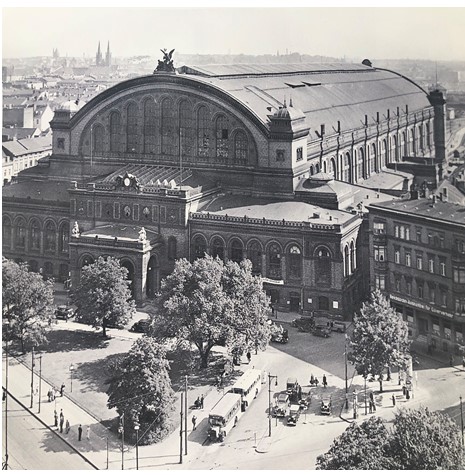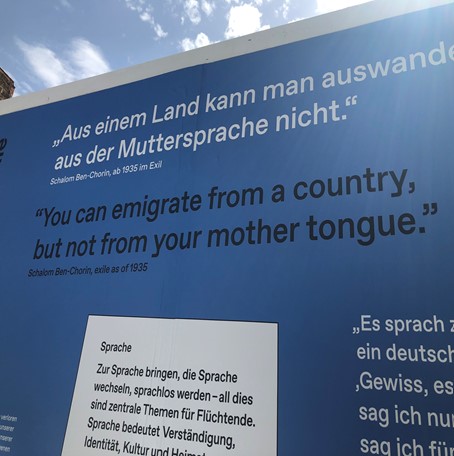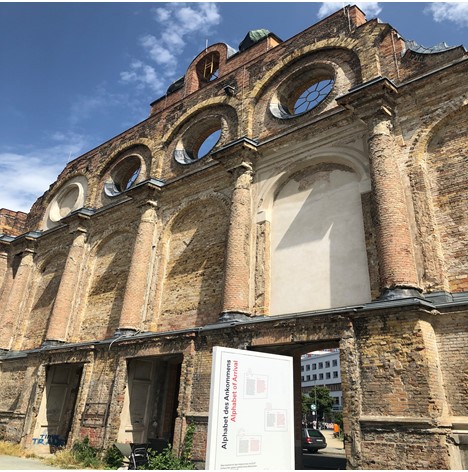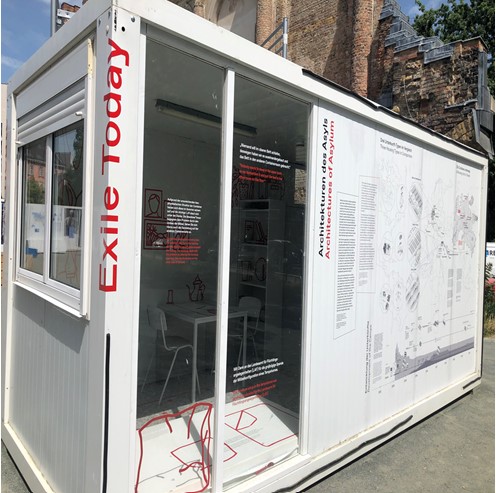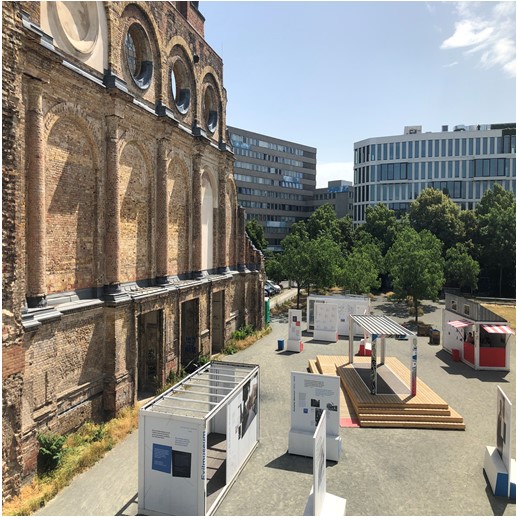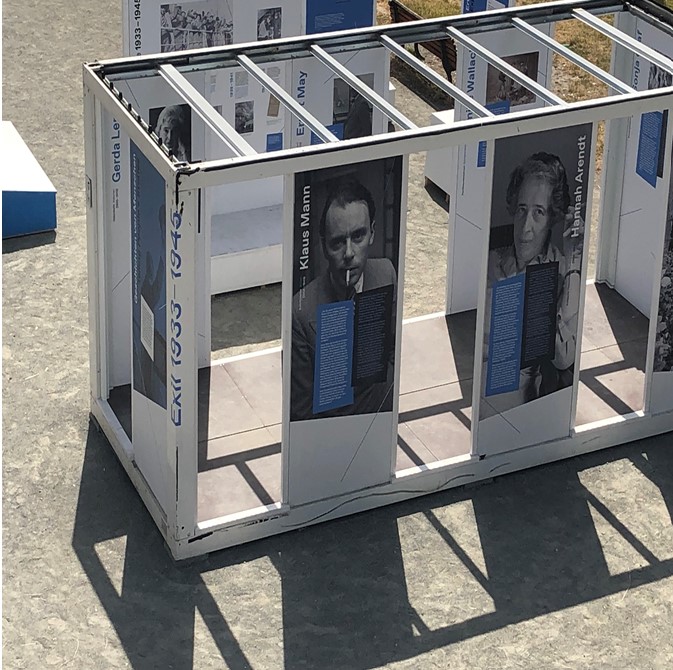A Letter from Ryan and Alethia White, serving in the Iranian Presbyterian Church in Berlin
Summer 2021
Write to Ryan White
Write to Alethia White
Individuals: Give to E200500 or Ryan and Alethia White’s sending and support
Congregations: Give to D507565 for Ryan and Alethia White’s sending and support
Churches are asked to send donations through your congregation’s normal receiving site (this is usually your presbytery
Subscribe to our co-worker letters
Dear friends,
From ruins comes rebirth. While exploring one of Berlin’s many neighborhoods one morning earlier this summer, I (Alethia) found a pop-up exhibition in the shadow of what was once Anhalter Bahnhof. This train station was once a major hub and boasted a huge half domed building housing the tracks and departure/arrival platforms. It is also from this station that many people were deported during the Second World War. Now all that remains standing is part of the entry façade. Each time I pass by, I always think of those who arrived, departed, and were deported against their will from this site. It is a haunting reminder that Berlin once looked quite different and was once much less tolerant of freedom of expression.
On this sunny day, I stop to allow myself to study this new exhibit, which turns out to be promoting a new permanent museum to be built on the same site. The new museum will wrestle with the concept of exile, linking the German history of those who were exiled during the war to the present situation. Germany has become a place where many find themselves in exile from their own country.
It is interesting, of course, to read the stories of those Germans who relocated under threat during the war years, many of whom then found their way to the United States. But when I push past the initial pictures and stories, it gets really thought-provoking. I come across a panel listing the Alphabet of Arrival, which is heartbreaking. Each letter is a short segment in the words of someone who has left their home country and arrived in Germany.The letter I is for Ideas about integration
“Integration is often understood as a one-way street. We are supposed to adapt as much as possible to the host society, to become as German as possible. But integration is not a garment that we can simply put on by giving up other identities. The host society should also contribute something to integration and look for common ground. Only then can a sense of belonging and inclusion emerge.”
The letter P is for Papierkram, which in English is translated as “Red Tape:”
“In most cases, refugees have to go through more complicated bureaucratic procedures than locals. Imagine going to a new country where you don’t speak the language, don’t understand the customs, and then have to go through procedures that even bureaucrats don’t understand properly. Well, good luck with that! In many cases, people get professional help from NGOs, but it’s never enough.”
And then there’s the Letter Q for Qualifications and Work:
“With résumés, the first glance is always at the name and place of birth- and only later at the qualifications, if at all. Many of us have to start from scratch despite having good qualifications and work experience. Degrees and credentials are not accepted, or they’re treated as if they were nothing. As if we had learned nothing. As if we didn’t exist before our arrival.”
A United Nations Refugee Agency (UNHCR) statement from 2019 is quoted in this exhibit, “Today, one of everyone 108 people worldwide is forced to flee their home. Statistically speaking, 25 people lose their homes everyone minute, two people for each breath we take.” That was in 2019. It is a sunny day in 2021 when I visit this place and read through these stories. On the side of the site is a new community gardening project intended to bring people in the neighborhood together, share stories, and get to know each other. All of these things are hopeful. However, I am reminded on this day how heavy it can be to take in someone’s story, particularly when it is not so hopeful or when that story is painful to hear. I consider the idea that we each are strands woven into the tapestry of humanity, in all its colors, in all its beauty and terror; we each matter, and we cannot exist without the other strands.
As I wander through this exhibit, weave in and out of the open doorways of the remaining Anhalter Bahnhof façade, and soak up the words that others have dared to share, I hope that we will dare to pass those words on. I hope that we will take time for the stories of others and to share our own. I hope that we will take care of each other. Let’s look into the eyes of those around us, let’s notice each other, and let’s not turn away when it gets rough.
Thank you for sticking with us as we share stories and observations about our work and experience here. Your comments and stories are always appreciated. Remember that tapestry idea? You are in there with us, and we are thankful to be on the journey together and for your support and interest along the way.
With love,
Ryan and Alethia
![]() You may freely reuse and distribute this article in its entirety for non-commercial purposes in any medium. Please include author attribution, photography credits, and a link to the original article. This work is licensed under a Creative Commons Attribution-NonCommercial-NoDeratives 4.0 International License.
You may freely reuse and distribute this article in its entirety for non-commercial purposes in any medium. Please include author attribution, photography credits, and a link to the original article. This work is licensed under a Creative Commons Attribution-NonCommercial-NoDeratives 4.0 International License.
